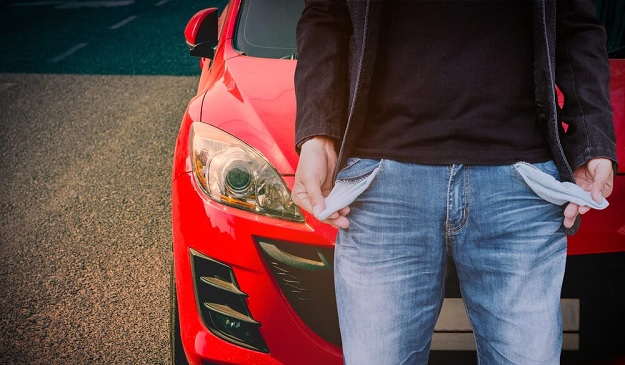A car loan makes it simpler for people to purchase a car. This is an extremely helpful instrument which makes it possible to get a new vehicle to make life simpler without being held back by the need to make the full payment at once. The borrowers have to repay it back in accordance with the contract terms which the lending company has set and failure to abide by the repayment terms can have a significant negative impact on the borrowers in multiple ways which we will discuss in this article.
When Is A Loan In Default
A loan repayment needs to be done as per the schedule laid by the lenders. This schedule is provided to the borrower when the lending company (bank, credit union, or online lender) makes the offer. The offer usually contains all basic details such as rate of interest being offered, total amount to be paid, repayment dates, etc. The borrower gets the opportunity to assess this offer, and evaluate whether it is suitable for them or not.
If the borrower has agreed to repay the loan as per the contract terms, they are legally bound to stick to it throughout. However, if the borrower has not made payments for 30 days or more, the loan is considered to be in default.
Also read: What is Car Loan and its Different Types
The limit of time by which the loan is considered to be in default can vary for every loan provider, however the usual range stands between 30 days to 90 days.
If the loan repayments are not paid through this time, the lending authority can choose to repossess the collateral (which in most cases is the vehicle itself). They can also choose to pass the loan off to a loan recovery agency, who then takes on the task of recovering the loan from the borrower. This process is known commonly as charging off the debt.
Impact of Not Paying The Car Loan
There are several adverse impacts that not paying a car loan can have on the borrower. Some of the main effects include the following:
Hampering the borrower’s credit score
When a borrower defaults on their loan, their credit score is the first thing to be negatively affected. The credit score plummets, which can impact the borrower’s capability of finding a loan in the future for any purpose. In short, it decreases their creditworthiness for future transactions.
Repossession of the Car
Another significant impact is that the car for which the loan was taken gets repossessed by the lenders until the loans are paid back. In certain cases, they can also sell it off to make up for the losses they are incurring due to the default. For repossessing the car, the lender does not need to provide any notice, and can take it away at any time.
Penalties
When a borrower misses payments, or fails to complete the payments on time, they may be subjected to penalties like late payment fees, repossession charges, and more. These can also have an impact on their credit score, in addition to meaning that they have to spend even more money.
Covering Recovery Gap
Even if the lender sells the car to make up some money, the borrower would still be liable to pay any remaining amount. What this means is that if the lender sells the car, and the amount of money they earn through it is not enough to cover the entirety of the remaining loan amount (inclusive of interest), then the borrower would have to fill that gap by making payments.
Also read: What to do if i am unable to pay my Car Loan
But, if you do not have the funds to repay your car loan, what can be done? Are there any options which borrowers can look into if they are lacking the funds to repay their car loans? Yes!, there are a few options that you can look into instead of letting the loan go into default.
Alternatives For Inability To Pay Back The Car Loan
To avoid getting impacted by the adverse effects that loan defaulting can have, the borrower can opt for one of the several alternatives. Some options that can be explored include the following.
Notify The Lender
The first option is to notify the lender about your inability to repay the loan. In most instances, the lenders would try to find a solution to help you repay the loan without having to incur greater costs or suffering credit loss. Some solutions they can offer may include reworking the repayment schedule, and increasing the loan duration which in turn reduces monthly payments.
Selling Off The Car
If you do not have enough funds to repay the loan, your car will likely be repossessed anyway, and your credit score will also suffer. To avoid that, you can choose to sell the car yourself, ensuring you find the best market value, and use that money to repay the loan. This ensures that your credit remains unharmed, and that you can cover as much expense through the sale as possible. This means that the amount of overhead needed to cover the entire loan amount would lessen significantly.
Loan Refinancing
This is yet another option which you can choose to repay the loan. Refinancing loans can be obtained from either the same lender, or from a new lender. You can also use a personal loan for this. Refinancing will allow you to repay the loan without defaulting, while setting a new schedule for the repayment of the new loan. This will, however, only be useful if the repayment installments for the new loan are smaller than the original loan and you have the means to repay them as per the contract terms.
Conclusion
Defaulting on any type of loan comes with a lot of disadvantages. Borrowers are at a risk of not only losing their purchases but also suffering in the long term due to the harmful impact it has on credit history. However, researching alternatives to defaulting is a much better way to tackle loan repayment challenges, which has the potential to protect the borrowers from such long-term impacts. It is essential to work with the lender to find a suitable course of action.



